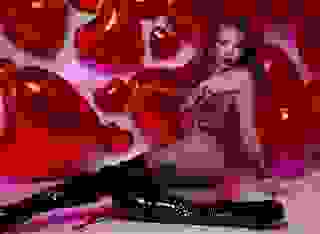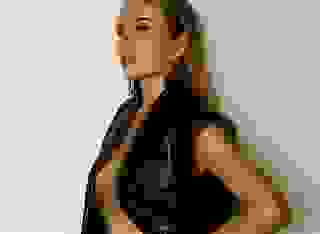- Novels and Novellas
- Celtic Mist Ch. 07
Note: You can change font size, font face, and turn on dark mode by clicking the "A" icon tab in the Story Info Box.
You can temporarily switch back to a Classic Literotica® experience during our ongoing public Beta testing. Please consider leaving feedback on issues you experience or suggest improvements.
Click hereChapter 7: The Fugitive
Damn it all! Money or no, he should simply stowaway aboard the next vessel bound to Liverpool or London!
Declan chafed at his thwarted mission to avenge his family. Every day at the docks, in the course of his work as a lumper, he loaded cargo onto ships bound to England...bound to the place where now resided the soulless fiend that was Blaylock...the man who had raped his mother and murdered his family.
'Twould be so easy to conceal himself in the hold of a ship behind a row of barrels or crates...and within days find himself roaming the streets of London on the trail of his prey. 'Twas only the money...the lack thereof...that kept him in Dublin. At his present wages, Declan calculated that he would need to continue in his job for another four months to have sufficient coin to sustain himself for several weeks without employment as he searched for Blaylock.
Intermittently as he worked, Declan's eyes would shoot down the River Liffey, out to the harbor to the grey horizon --- not too far beyond which lay England --- and the reminder would ever incite the dull, bitter thump of the blood pulse deep in his belly.
In the meantime, his labors carrying lumber, bales, barrels, and crates, both at the docks and at Murphy's tavern, kept his limbs strong. He performed his other exercises on the floor in his garret bedchamber, and to maintain his wind, he resumed his previous regimen of running...now in the streets as dawn broke. Aye, he would be ready for Blaylock!
But his mind could find no ease. The rage in his soul sought an outlet...and soon found it in angry contemplation of the misery of Dublin. The first reaction in his gut of simultaneous revulsion and empathy soon evolved into a more analytical consideration of the broader problem in Ireland.
In his wanderings throughout the city, Declan beheld unrelenting scenes of poverty and degradation --- juxtaposed a few blocks later to wide, well-groomed streets lined by elegant mansions and traveled by gilded carriages. He remembered right well the desperate fellow beggars with whom he had shared the streets for years of his young life --- then remembered the opulence of the Duke's carriages, raiment, and abode at Kilmaedan Castle. It shamed him to know that he had devotedly served as a guardsman to the estate --- protecting the family's lavish life.
He had been ignorantly contented in his life as a guardsman and prizefighter, and although he had been generous with his winnings among his comrades and the street urchins in Kilmaedan town, he had not dwelt long upon the disparity in conditions between the poor and the gentry. Now it seemed an anathema.
Every day at the docks he loaded cargo of foodstuffs --- the bounty of Irish soil: wheat, oats, flour, butter, bacon, ham, beef, eggs. All was shipped elsewhere, the profits lining the pockets of merchants and wealthy landowners, even as the Irish people went hungry.
He pondered the circumstances of his father's death: John Muldowney had died defending the author of an allegorical pamphlet that called for the ousting of the English oppressors from Ireland...he had died for the right to speak out against injustice. Had his father been fighting for this cause for some time? In other ways? Unable to immediately avenge his father's murder, Declan's agitated soul soon focused on his father's apparent cause, and he laid the credit of the plight of the Irish at the feet of the English occupiers.
All the wealth, land, and power in Ireland was in the hands of the English rulers and their lackeys --- a handful of Irish and English families who had been rewarded for their loyalty with elevation to the gentry and grants of lands stripped from their original Catholic owners. Now the populace lived in destitution.
'Twas true that the lackeys were Protestant, and the populace Catholic --- but to Declan this mattered less than the iniquitous circumstances authored and enforced by the English. Although he had grown up Catholic for the first nine years of his life, the subsequent struggle for self-preservation after the shock to his memory had abolished most sectarian fervor on his part. To Declan, the rights of people were paramount, no matter what their religious persuasions.
This very subject was indeed one of keen interest about him. In the tavern every night were heated exchanges between loyalists who supported the Crown, and men with republican "rebel" sentiments. Many was the night that Declan was obliged to break up fights when the arguments descended into violence. Similar tensions were appreciable on the streets, both among agitated citizens, and in newspaper headings.
At meals in the kitchen, Mr. Murphy and the lodgers engaged in debate over the topic --- Mr. Murphy making no bones about his hatred of the English. "The bastards have been beating us down for over six-hundred years!" he growled, thumping his fist on the table, rattling the teacups. "They took me leg and me sons! 'Tis time we cut them down in the streets and sent their corpses back to their own bloody country!"
Most of the lodgers were of a like mind, albeit less violently. Mr. Wainwright and Mr. McKee --- a shipyard foreman and a Custom House clerk --- offered an opposing opinion. "These United Irishmen are naught but wild Papists, determined to commit us to the tyranny of Rome."
The printer, Mr. O'Toole --- a thin, bespectacled man in his mid-thirties --- raised his hands and countered, "You are victims of perfidious proselytism if you believe that. The United Irishmen care nothing for religious creed --- hence their name. They speak for the right of Irishmen of all faiths to govern themselves on their own soil."
"They are incapable of governing themselves, let alone a country. Ireland will descend into anarchy."
"The Americans are governing themselves --- as are the French."
"The French! If you call the guillotine governing!"
Declan listened intently to these conversations, endeavoring to understand the years of tensions that had led to the current state of affairs in Ireland...the tensions to which he had for the most part been oblivious.
As he learnt more, chagrin overwhelmed him at the extent of his indoctrination by Blaylock and Bruckton. When he had first encountered them in the square in Kilmaedan town, his instinct had been to be distrustful of their English accents. Why had he not listened to his Irish heart?! Hunger and despair had crushed his soul, and he had let himself be seduced by promises of food and comfort and had become their fighting cock.
During his years at Kilmaedan Castle, Blaylock, Bruckton, the Duke --- the whole estate system had had his undivided loyalty. He had without a second thought even participated in missions to quash purported rebel activities that the guards were told threatened the castle. Indeed, 'twas "rebel activities" that had been the pretext for seizing Aoife. Whether or nay Aoife was a rebel, Declan could not say, but it had proved to be not at all the reason for Blaylock's interest in her.
But...if he had trusted his instincts and rejected their overtures that day on the square, he would never had learnt who he was...nor found his family's murderer...nor met Aoife. By God, the vagaries of Fate were indeed fodder for contemplation!
At the end of October, Mr. O'Toole brought a newspaper called The Press to the breakfast table and read from it an open letter to the Marquess of Camden, the Englishman serving as Lord Lieutenant of Ireland. The letter writer held the Marquess accountable for the execution of one William Orr, claiming that in "the death of Mr. Orr, the nation has promoted one of the most sanguinary and savage acts that had disgraced the laws."
The letter then went on to accuse the Crown of a campaign of "massacre and rape, military murders, desolation and terror." There was much debate among the lodgers as to the identity of the cryptic "Marcus" who had signed the letter, but even Mr. O'Toole, who seemed most knowledgeable among them about the anti-Crown forces, could not confirm the author.
Declan was keen to educate himself about this infamous event that had been transpiring even as he had been embroiled in his own tumultuous situation the past weeks. When he had a chance to speak to Mr. O'Toole alone in the parlour, he asked him about William Orr and the United Irishmen. Declan was vaguely familiar with the name United Irishmen as the formal appellation of the dominant force behind the ongoing rebel sentiment.
From O'Toole he learnt that the Society of United Irishmen had been founded in Belfast six years earlier in 1791 and, inspired by the ideals of the American and French revolutions, called for a sovereign Ireland in which all peoples, no matter what religious creed, shared equally in government. In 1794, the British authorities banned the revolutionary Society.
William Orr had been a member of the Society who had, upon perjured testimony, been falsely convicted of administering the United Irish oath to a soldier --- a capital offense. The government had wished to make an example of him, and his execution was no less than judicial murder --- so opined O'Toole. Orr's execution two weeks ago had provoked indignation throughout the country, and the man was already considered a martyr for the cause of liberty.
"Since you're interested, take this paper and examine it at your leisure," Mr. O'Toole urged. "'Tis the newspaper of the United Irishmen."
Declan accepted the paper eagerly.
"Where are you from?" Mr. O'Toole asked, studying him.
"Kilkenny originally."
Mr. O'Toole's brows raised. "Your family name is Muldowney, if I recall correctly?"
"Aye."
"And you're from Kilkenny? Are you kin to John Muldowney? He was a printer in Kilkenny...some ten years ago."
The hair on the back of Declan's neck rose as he gaped at O'Toole. "You knew John Muldowney?" His voice was scarce more than a croak.
"Of him, I know of him," Mr. O'Toole responded, with a rueful nod. "Among printers with certain...sympathies, he is regarded as somewhat of a martyr for the ideal of a free press. He courageously printed Mulkey's infamous sheep husbandry pamphlet...and for his trouble paid the dearest price a man can pay...as did his family, as I recall."
"He was my father," Declan said in a strained voice. His heartbeat was palpable. 'Twas the first time he had spoken the words aloud.
Mr. O'Toole blinked and his mouth pursed. "I'm very sorry Declan. What happened to your family was an atrocity." Behind the spectacles, his eyes were compassionate as they perused him anew. "You must have been just a lad when it happened."
Declan nodded.
Mr. O'Toole's mouth hardened into a tight line. "Know certain that your father was a brave man, and his death was not in vain, for his courage has been an inspiration to those who continue the fight for freedom."
Declan nodded as he stared down at the newspaper upon his knee, slowly rolling it into a tube, then unrolling it. He looked up at Mr. O'Toole and said in a low, flat tone, "Let it not be known that John Muldowney's son yet lives. I have recently discovered the murderer and mean to catch him unawares when I have my day of reckoning."
Mr. O'Toole's eyes gleamed; he nodded. "'Twill go no further by my lips," he promised.
The next day, Mr. O'Toole gave him additional issues of The Press, and Declan pored over the United Irish newspapers. His eyes were opened to circumstances previously unknown, as well as resurrecting distant memories from his Catholic childhood.
Since the time of the Reformation --- over two hundred years ago --- Catholics in Ireland had been kept in a degraded state by virtue of a series of Penal Laws designed to deprive them of civil liberties, land, education, and influence: Catholics were forbidden to vote or hold public office, to own arms or serve in the military, to have their own schools or have their children educated by Catholic teachers, to buy land, to rent land worth more than 30 shillings a year, or to own a horse valued at more than five pounds. Catholics were obliged to pay a penalty tithe of ten percent of their income for failure to attend Anglican church services. And this was but a small sample of an extensive list of prohibitions.
'Twas evident that Catholics were not the sole target of the oppression. Many of these laws also applied to any "dissenter" from the state mandated Anglican church...for example, subjecting Presbyterians to many like injustices.
The newspaper acknowledged that there had been a degree of relaxation of the Penal Laws --- in 1793 England had needed men to fill their army and navy, and the ban on Catholic military service was lifted. In the same year, Catholics and other dissenters were granted the right to vote...although the property threshold necessary to exercise the right was high enough to maintain Catholic disenfranchisement.
In awe Declan read the United Irishmen's tenet:
"We can give no truer definition of slavery than that state in which men are governed without their consent, and no better description of freedom than that not only those who make the law, should be bound by the law, but those who are bound by the law should share in the making of it."
Upon reading William Orr's speech from the gallows, a lump formed in Declan's throat:
"...but if to have loved my country--to have known its wrongs --to have felt the injuries of the persecuted Catholics and to have united with them and all other religious persuasions in the most orderly and least sanguinary means of procuring redress -- if those be felonies, I am a felon, but not otherwise."
And at his words to his children --- "May they love their country as I have done, and die for it if needful" --- Declan swallowed and blinked. Ma, Da, Rory...Ireland!
Declan approached the printer when he next found him alone. "Would ye be knowing how a lad could help the United Irishmen?"
O'Toole's grey eyes studied him intently through his spectacles for several moments. "I'll make some inquiries," he said at last in a low voice.
*****
Even as Declan's brooding soul was finding inspiration in the noble ideals of liberty and equality, so did daily life go on.
The day after the barmaid Kate invited herself to Declan's bedchamber with the extra quilt, she and Sophie accosted him whilst he was carrying an empty cask to the alley door.
"Declan," Sophie said.
He set down the barrel and looked at them somewhat discomfited. In his last encounter with each, he had turned away on the brink of fucking them. With reddening cheeks, he raised his eyebrows inquiringly.
They both looked solemn. Kate spoke. "We didn't ken ye'd lost your sweetheart, otherwise we wouldn't have teased ye so."
"Aye," Sophie said. "'Twas a wager-like...which would...bed ye first, so it was." She smiled ruefully but her eyes still looked mischievous.
Declan broke out laughing. "Christ, ye lasses! Take care with the weapons ye wield...you could torment a lad unto his death!"
"Do you forgive us?" Kate asked. "We promise to let ye be now."
He nodded and put an arm about each girl's shoulders, giving them a little squeeze. "Aye. 'Twas the finest wager that I never won, so it was."
From that day forward, Kate and Sophie were true to their word and ceased their provocations, to his wry relief --- his heart was filled with Aoife but, Jaysis, he was only human!
At night in his garret, he set aside his uneasy meditations and found private solace in thoughts of Aoife. After several greedy frigging sessions with the breeches, he was forlorn to discover that he had exhausted the traces of her cunny's nectar...still he pressed them against his face as he stroked his cock, yet roused by the fact that the fabric had been wedged into her little slit.
*****
One Saturday in late November, Mrs. Murphy summoned Declan to the kitchen. 'Twas after breakfast and the room was otherwise empty. "Declan would you do me a service today?" she asked as she hung up her apron.
"Aye, mum, of course."
"Would you keep company with Mr. Murphy? Today is our twin sons' birthday...a sad anniversary for which we each find our own comfort. I'm going to visit me daughters, but he always wants to make a pilgrimage to Stephen's Green. Will ye make sure he doesn't get into trouble?"
"I will."
After his wife's departure, Mr. Murphy's first order of the day was to pour himself a cup of Jameson's. Given the day's significance, Declan did not want to reject the offered libation, and agreed to a smaller measure.
Next, they walked the several blocks to Stephen's Green in the brisk autumn wind, weaving their way round people on the sidewalks as Declan tempered his strides to match the slower pace of Mr. Murphy with his peg leg. He listened to Mr. Murphy whilst his eyes registered the improving character of the streets heading away from the City Quay neighborhood. Every so often, Declan's eyes were momentarily distracted by a glimpse of red hair on a passing lass in the throng.
"Me two girls were born first, and I love them fierce, but God knows there is a bond between a man and his sons that is different, so there is. Ye canna imagine our shock to be blessed with two at once."
They stepped round a lad hawking newspapers, Mr. Murphy shaking his head as the boy tried to press a paper into his hand.
"'Twas hard, especially for Mary, four weans at once. I was working at the docks then, just like ye do now. God granted us sixteen years together as a family. But in 1789, me luck turned sour."
Mr. Murphy paused and leant against a building to rest. He puffed on his pipe, the smoke dispersing in the breeze. "Declan, do ye ken about the press gangs?"
Declan nodded. His fellow dockworkers had warned him about the groups of British naval "recruiters" who might appear at any time at the docks to forcibly press men into years of service in the British Royal Navy --- under English law, 'twas perfectly legal. Any man of "seafaring habits" between 18 and 55 years of age was eligible, and refusal to serve was punishable by hanging.
As they resumed walking, Mr. Murphy continued. "In 1789, when my boys Patrick and James were sixteen, I was pressed into the navy...without so much as a fare thee well to me loved ones. For five years I served, never once seeing me family. Those were five terrible years...much of it my wife and children living behind a warehouse." Mr. Murphy's voice grew strained.
They passed through the entrance gate into Stephen's Green. Scattered people were about as they proceeded deeper into the park.
"Everyone did what work they could find, but often none was to be found. Me boys, alas, took up with a street gang, the Ormond Boys. At least 'twas a Catholic gang...but it matters little now." Mr. Murphy drew on his pipe. "Well, the year after I was pressed into service, a desperate battle was fought on the streets of Dublin between the Ormond Boys and a gang of drunken Protestant bastards, the Liberty Boys. Two days it lasted and had to be put down by the Militia. Many were killed, and me Patrick was among those charged with murder...they said he struck a Liberty Boy who later died...Patrick was sentenced to hang."
Mr. Murphy pointed to a path between two flower beds filled with fallen leaves. "I was at sea, so I was, so I know from Mary's account what the sheriffs said." They swerved as a dog ran past them, chased by a pair of hollering weans.
The path opened out onto a large, brick-paved square. A few people huddling on benches along the sides looked up hopefully for alms as they entered, but slumped again upon beholding their simple garb. Mr. Murphy waved his pipe at the space. "They used to hold public executions here afore Kilmainham Gaol was built." A few steps into the square he stopped. "'Twas here where me Patrick's soul left his body. He was but seventeen."








